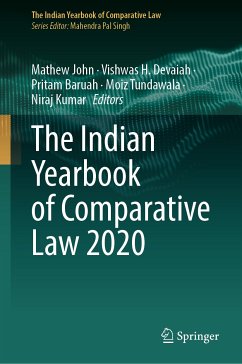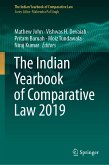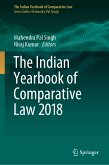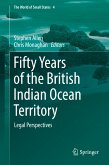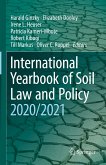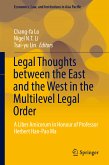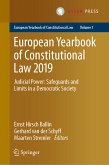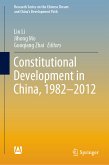This yearbook is a compilation of thematically arranged essays that critically analyse emerging developments, issues, and perspectives in the field of comparative law. It comprises three parts wherein the first part focuses on public law and its related issues, the second part engages with issues in the field of private law, and the third part discusses general themes in comparative law. The yearbook includes papers on comparative study between universalism and Asian exceptionalism under human rights perspective, reclaiming the German concept of the rule of law "Rechtsstaat", the Guarantee Clause in global constitutionalism, administrative justice, constitution and culture, and the category of the 'stranger' in modern legal and political thought. The Yearbook touches upon various issues, e.g., forest protection and the idea of Justice, the application of defamation law on politicians, the intersection of customary law relating to child marriage in different countries, hybrid statehoodand Buddhist nationalism. Further, scholarly work on the themes of comparative law, customary law, environmental law, and constitutional law is also highlighted.
The yearbook intends to seamlessly tie together discussions on both public and private law aspects of comparative law. It encourages readers to gain a nuanced understanding of the working of the law, legal systems and legal cultures while aiding deliberations on the constituents of an ideal system of law.
Dieser Download kann aus rechtlichen Gründen nur mit Rechnungsadresse in A, B, BG, CY, CZ, D, DK, EW, E, FIN, F, GR, HR, H, IRL, I, LT, L, LR, M, NL, PL, P, R, S, SLO, SK ausgeliefert werden.

